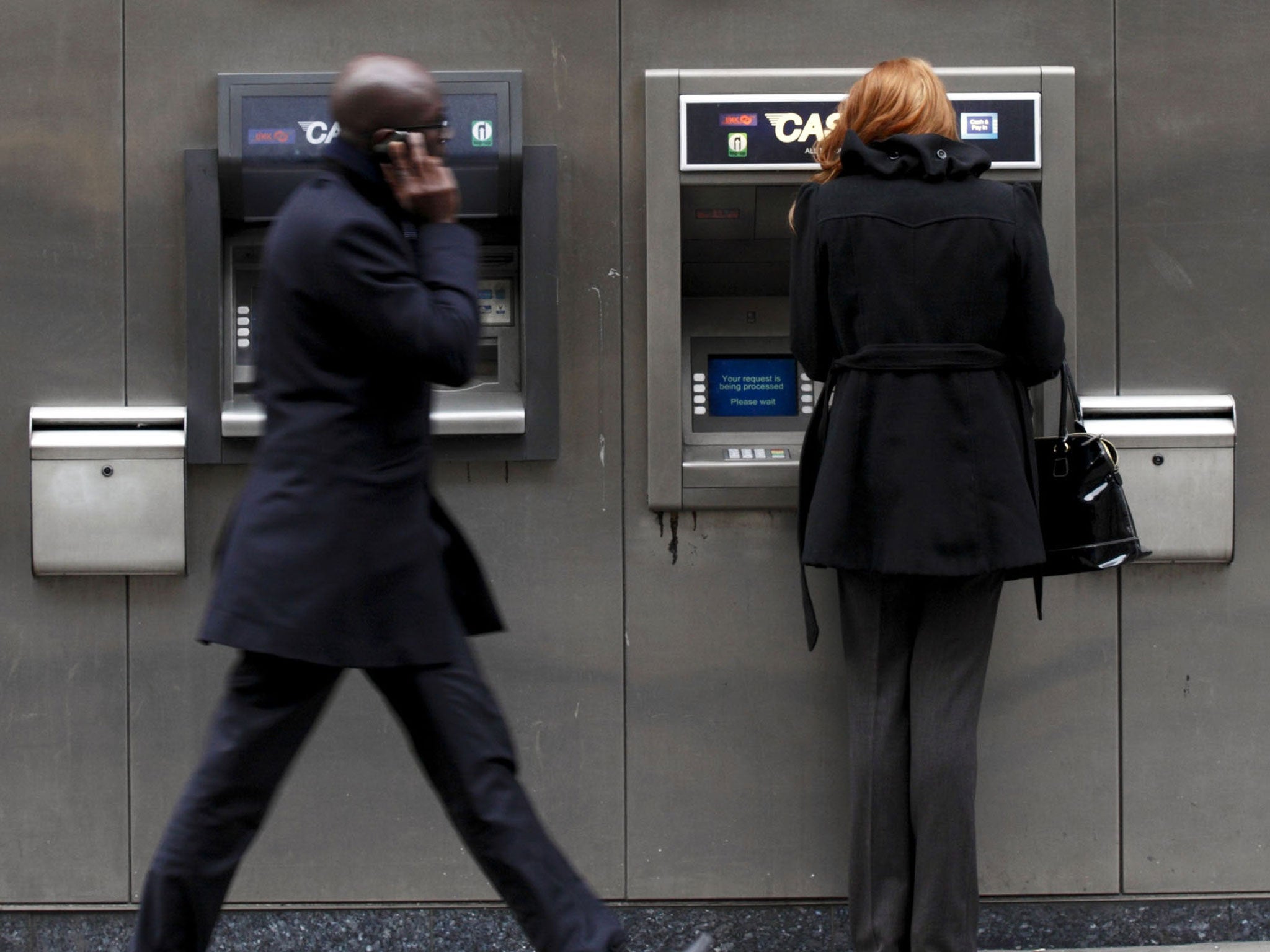Which? investigation shows banks charging more than payday lenders for overdrafts
The costs faced by those who go into the red without their bank's prior authorisation have been causing controversy since before the financial crisis

Your support helps us to tell the story
From reproductive rights to climate change to Big Tech, The Independent is on the ground when the story is developing. Whether it's investigating the financials of Elon Musk's pro-Trump PAC or producing our latest documentary, 'The A Word', which shines a light on the American women fighting for reproductive rights, we know how important it is to parse out the facts from the messaging.
At such a critical moment in US history, we need reporters on the ground. Your donation allows us to keep sending journalists to speak to both sides of the story.
The Independent is trusted by Americans across the entire political spectrum. And unlike many other quality news outlets, we choose not to lock Americans out of our reporting and analysis with paywalls. We believe quality journalism should be available to everyone, paid for by those who can afford it.
Your support makes all the difference.Payday lenders often like to moan that banks don’t get the same sort of scrutiny that they do when it comes to the subject of ruinously high cost credit.
While it doesn’t, and shouldn’t, grant their bad behaviour a pass, they might just have a point.
Which? has just put out research demonstrating that consumers needing as little as £100 can end up paying up to £156 more for a 30 day unauthorised bank overdraft than the Financial Conduct Authority (FCA) allows payday loan companies to charge for borrowing the same amount over the same time (£24).
Needless to say, that is the sort of fee that might have made the former bosses of wonga.com sit up and say "yowza!" in the days when they could charge what they liked and took to using fake solicitors’ letters to bully distressed borrowers.
The £156 more than payday lenders overdraft charge, by the way, is from NatWest, which is in the middle of an intensive ad campaign that seems designed to distance itself from its parent. That would be Royal Bank of Scotland. Oops.
Now, of course, the banks will tell you that Which’s research covers unplanned and unauthorised overdrafts. If you call your bank, they’ll say, it’s usually possible to extend an authorised overdraft for a relatively modest charge.
The problem, as ever, is real life. People should call their banks. But in the middle of a crisis when they're already working long hours, with kids running around, and/or elderly relatives to worry about, it’s easy enough to forget. Banks don't have a wonderful reputation for being easy to deal with and if a family member is struck with a sudden illness, or if someone suffers a bereavement, even if they're the victim of a crime? Well, it's easy enough to see why that call might not get made.
Directors of retail banking for big financial institutions have “people” to help deal with problems arising from any troubles they might face. Ordinary customers aren't able to claim from what a friend of mine once described as "the corporate welfare system".
However, Which? has also found that some people can simply end up with unauthorised overdrafts because of the charges levied for authorised overdrafts. Or because the amount they inadvertently borrow isn’t quite enough to trigger one of those text alerts banks are so proud of pointing people like me to.
The organisation says it has found troubling evidence of people getting trapped in a cycle of charges that leaves them drowning in the debt.
That, by the way, is exactly the sort of thing that used to happen with payday loans companies until it prompted the regulators to institute a crackdown.
The problem of unauthorised overdrafts, and the charges for them, has been hanging around the banking industry and its regulators like a bad smell for years now. It was being discussed even before the financial crisis of 2008 that led to the industry receiving billions of pounds of taxpayers’ cash to keep it afloat.
The Competition & Markets Authority did a big number on the retail banking industry a while back, but didn’t do very much to address this particular issue, other than telling banks to come clean over their charges. Now the FCA, which has taken on the job of policing consumer lending, is taking submissions ahead of a review of its own into short term credit.
This has been going on for too long. When an industry manages to make payday lenders look good, when it allows them to say “hey, don’t look at us, they’re worse” there is a pressing need for action. It’s time this problem was nipped in the bud.
Join our commenting forum
Join thought-provoking conversations, follow other Independent readers and see their replies
Comments